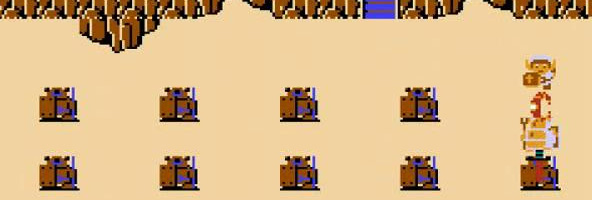
Microtransactions are big business and they aren’t going away any time soon.
That’s the conclusion one can easily reach by looking at the latest brief from market research firm SuperData, which puts a number on the console MT business, and it’s a big one: $352 million per year. The number’s been trending upwards for several years, and there’s little reason to believe that trend will reverse itself. The door’s been opened, and nobody’s likely to shut it and leave that much money on the table.
Just about every game today, even single-player, non-F2P ones, requires a device with an Internet connection, whether that’s via your console or a PC service like Steam or Origin. That connection lets you play with friends or enjoy easy updates and patches, but it also serves as an avenue for game manufacturers to easily peddle their wares, sometimes in an obtrusive fashion. It’s not like the old days where you could buy a single game, like The Legend of Zelda, and never have to worry about being harassed about buying more content or outfits or unlocking this level or that power.


Wait, why is this a bad thing?
Take Zelda as an example. If, in 1986, you could have purchased more dungeons for the original game a few months after it launched, wouldn’t you have done so? I know I would have. If early Madden NFL games would have let you update rosters during the season or early Final Fantasy games would have offered more boss fights, wouldn’t you have considered that a good thing? More game = better, right?
Of course, we know where that road has led. Lots of MTs/DLC are good, solid content or at the very least inoffensive stuff, like skins. The problem, for most people, lies in a game seeming incomplete without the expenditure of additional money beyond the purchase price or initial download of a F2P game – like hotbars in Star Wars: The Old Republic, the prothean crew member in Mass Effect 3, or only having a single fighter available in Killer Instinct – or when the MT in question is viewed as pay-to-win. MTs are a little like Anakin Skywalker; they could have been a powerful force for good but have been subverted by the dark side to suit their own evil whims.


“So, shady microtransactions make you more money?” – Luke
“No. Not more. Faster money, yes.” – Yoda
So what’s an MT-hating, all-in-one-gaming-experience, F2P-loathing gamer to do? The same thing gamers have been doing all along: calling companies out on their BS and voting with their wallets. Now I’m not going to say this will be 100% effective. For all the SimCity shenanigans, Mass Effect 3 first-day DLC outrage, and mediocre Maddens, EA is doing just fine and will continue to rake in the millions, regardless of how many people scream on forums and Twitter.


But there is room for pushback, as we’ve seen with SimCity, which recently launched its offline mode. Or with CCP, with its $70 monocles for EVE Online. Or horse armor in Oblivion. Or premium ammo in World of Tanks. Gamers aren’t going to win every battle against MTs, but they can at least chase away the worst of the stuff.
To which I’ll bring up the most blatant pay-to-win concept: selling items that are only available in a cash shop and are statistically better than anything a player can get in game, like a gun that straight up does more damage with no drawbacks. Virtually no core mainstream F2P, or even sub-based or buy-the-box, game will touch that sort of thing. Sure, you might see it in some imported games from regions where that sort of thing is more acceptable, but not in North America. That’s because gamers on this side of the ocean have decided that’s not acceptable, and the developers know the negative reaction would be suicide.


That’s the best we can do: win the battles we can and learn to live with the ones we can’t. With $352 million in microtransactions on consoles alone, many developers seem to have found the right balance between profit and pleasing their customers, and they’re going to keep pushing that envelope. MTs are here to stay, and no amount of consternation is going to turn back the clock. Support the companies that do them right and abandon the ones that don’t.
Or just abandon every company that uses MTs. Problem is, in a few years, that means you’ll have to give up gaming.
if you want to play online game you can play free of cost free stream codes
ReplyDelete